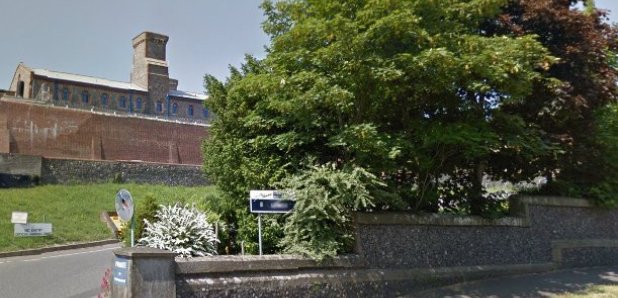Sussex Mental Health Fined £200k Over Teenager's Death
14 June 2019, 18:01 | Updated: 14 June 2019, 18:02

A scandal-hit NHS mental health trust has been fined £200,000 for failing to care for a suicidal teenager despite him being considered high risk.
Jamie Osborne took his own life on the hospital wing of Lewes Prison - run by Sussex Partnership NHS Foundation Trust - in February 2016.
The 19-year-old had already attempted suicide after being arrested and remanded in custody in 2015.
But staff working for the mental healthcare trust failed to properly monitor and treat him, a court heard.
He died three months later.
The Worthing-based organisation has previously come under fire for several deaths linked to its care.
The trust was also ordered to pay £25,000 in court costs and a £170 surcharge at Brighton Magistrates' Court after it admitted failing to provide care and treatment for patients in a safe manner in a prosecution brought by the Care Quality Commission (CQC) under health and social care laws.
The total of £225,170 must be paid within 14 days.
The court heard Mr Osborne was moved to the hospital wing of the prison after trying to kill himself in his cell on the general wing in November 2015.
He was found dead on February 12 2016 and the court heard there was a "catalogue of failings and missed opportunities" in his care.
District Judge Tessa Szagun, sentencing, said the care Mr Osborne received fell "far short of an appropriate standard", procedures "were not adequately adhered to" and there were "systematic failings" in how the trust trained staff.
She added: "The circumstances of this case are tragic.
"Their (the trust's) responsibility is to provide safe healthcare and treatment."
She said nothing would ease the "heart-rending suffering" described by Mr Osborne's mother when she previously told the court in a statement: "Knowing I will never speak to him again tears me apart."
Bena Brown, prosecuting on behalf of the health watchdog, previously told the court that despite being observed as "grossly psychotic" while remaining at a "high risk of suicide", there was "clear confusion by the staff" over Mr Osborne's care.
Ms Brown said: "They failed to provide healthcare and as a result Jamie died, and we say this was avoidable."
Staff failed to properly assess him, he was not given medication he had previously been prescribed and a hospital transfer which was being arranged did not take place, Ms Brown said.
When he started having violent outbursts and fashioning weapons, sufficient action was not taken to address his behaviour, the court heard.
Simon Burrows, defending, said the trust was "deeply sorry", adding: "He was their patient and he died in circumstances which may have been avoided.
"Systems were in place but they were not sufficiently implemented."
He called on the court to also consider the Ministry of Justice's (MoJ) responsibility for Mr Osborne's care, adding: "Jamie was not just a patient, he was in fact primarily a prisoner.
"He was becoming increasingly frustrated at being incarcerated."
A hospital transfer being arranged with the MoJ did not take place and trust staff could not visit patients until prison officers were available to unlock cell doors, the court heard.
Dr Caroline Ardron, who was in charge of Mr Osborne's care, won a High Court injunction preventing the trust from holding a gross misconduct hearing against her.
But in November the ruling was overturned when Mr Justice Richard Jacobs ruled there was a case to be heard.
Speaking to reporters after the sentencing, Mr Osborne's mother Jackie Curtis said: "We would just hope it doesn't happen to other people."
Mr Osborne's stepfather Leyton Curtis said of the fine: "It's just money, it doesn't really change anything.
"Hopefully they will learn from this and things will change."
The family are now awaiting an inquest and considering civil action against the trust.
After the sentencing, the trust said its own internal investigation into the death found "clear failings for which we are deeply sorry".
In a statement, it added: "The safety and wellbeing of the vulnerable people under our care is of the utmost importance. This includes acknowledging when things have gone wrong, learning from this and taking action to make changes."
In 2016, the trust - which the court heard has an estimated annual income of £1 million - was criticised over a review of nine killings carried out by patients as well as another who died in its care.
A review found the organisation did not always learn from its mistakes and sometimes "severely underestimated" risks.
This included the case of Donald Lock, who was stabbed 39 times by patient Matthew Daley after the pair were involved in a car crash in 2015.
Daley was convicted of manslaughter by diminished responsibility and the trust apologised, saying it should have properly assessed him.
Last year, the trust also apologised for failings which led to the killing of Brighton University student Janet Muller, who escaped from its psychiatric hospital in Hove in 2015 and was found dead in the boot of a car after being burned alive.
Christopher Jeffrey-Shaw was jailed for her manslaughter and her family received an undisclosed financial settlement from the trust.






















